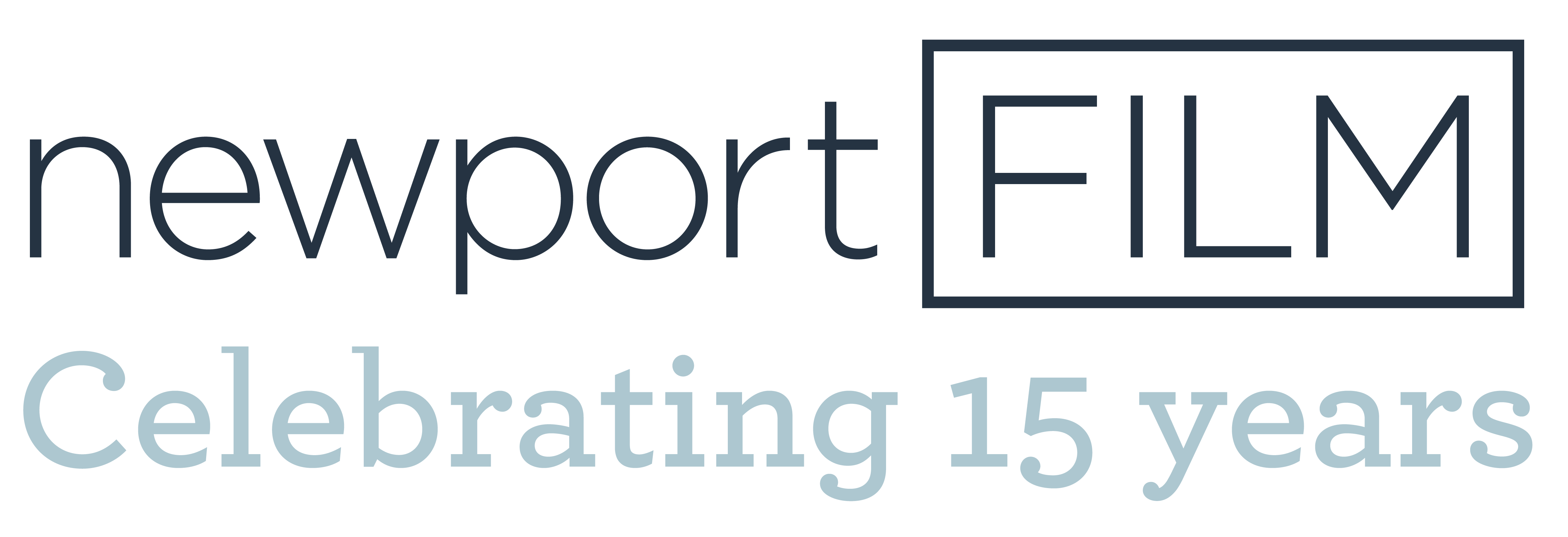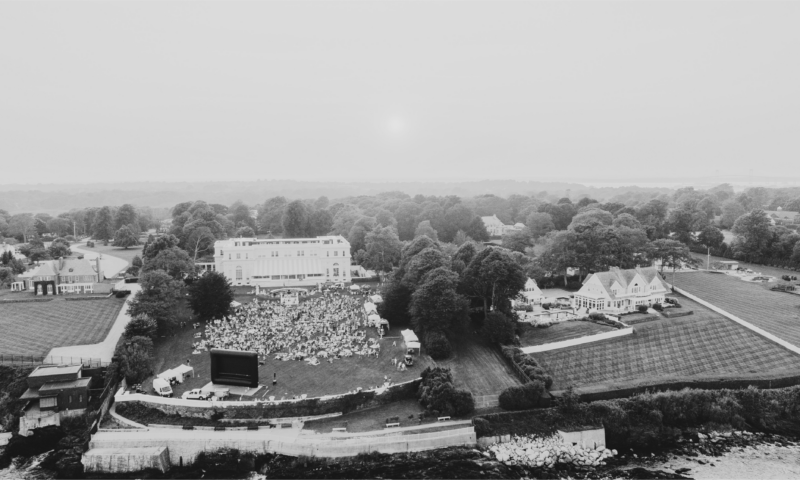By Nancy Austin, PhD – newportFILM Outdoors Summer 2018 Humanities Blogger
With support from the Rhode Island Council on the Humanities (RICH)
The combustible interplay of curiosity, caution and hubris is one theme I see emerging in newportFILM’s ambitious summer 2018 series of documentaries held outdoors each Thursday from June to September for free at different cultural venues across Aquidneck Island.
At heart, July 19th’s film, Serengeti Rules, is a loving tribute to the pioneering ecologists whose curiosity compelled each of these individuals to set out on a life work of scientific discovery. Collectively, their field work in nature has shaped our understanding of biodiversity and how sustainable ecosystems work. They helped the young field of Ecology mature from an over-reliance on natural history description and toward greater scientific rigor. For example, Bob Paine (1933-2016) proposed the ecological concepts of keystone species and trophic cascades, and James A.Estes conducted famous field experiments demonstrating these concepts in action. Estes classic work uncovered how otters (by munching sea urchins) become the unexpected critical keystone species in their ecosystem having an outsize impact on their kelp forest community. (The keystone species is that animal in the ecosystem whose activities have far-reaching collateral consequences, triggering what ecologists term a trophic cascade.) Thus, everything may be connected — but some animals are more critical than others. And those species may very well be predators that are paradoxically needed for the whole to stay healthy. Take note that most keystone species actually are predators, but not all are. In the case of the Serengeti, the keystone species is the homely wildebeest who acts as an “ecosystem engineer”. The wildebeest contributes to the eco-community by continuously grazing the grass to keep it at just the right height for a host of other plants and animals to flourish.
The film is based on a 2016 best-selling book by Sean B. Carroll, an acclaimed Professor of Molecular Biology and Genetics. In a lecture, Dr. Carroll explained that his Serengeti Rules project developed after he participated in 2014 on the Smithsonian Channel documentary, Mass Extinction, and later visited the Serengeti with his family. As eco-guide for his family in this vast African landscape, Dr. Carroll recognized how much of his expertise was on the scale of the molecular or cellular, and had been done in labs. How did his knowledge translate? For example, how might his insights on regulation at the cellular level inform our understanding of the Big Biology scale of an ecosystem? The outcome of his curiosity is Sean B. Carroll’s fifth book: The Serengeti Rules: The Quest to Discover How Life Works and Why It Matters (2016). Here he posits “regulation” – familiar to him at the cellular level – as similarly governing life at all scales. The book’s claim is this: “One of the most important revelations about the natural world is that everything is regulated―there are rules that regulate the amount of every molecule in our bodies and rules that govern the numbers of every animal and plant in the wild. And the most surprising revelation about the rules that regulate life at such different scales is that they are remarkably similar―there is a common underlying logic of life. Carroll recounts how our deep knowledge of the rules and logic of the human body has spurred the advent of revolutionary life-saving medicines, and makes the compelling case that it is now time to use the Serengeti Rules to heal our ailing planet.” Or, as the film’s press quotes his position: “This isn’t about making the world pretty – this is about making the world productive and functional.”
In the process of researching this blog post – at this fact-assaulted time in American history – and with newportFILM’s recent screening of Three Identical Strangers on my mind, I feel this aspect of the Serengeti Rule’s project deserves a deeper dive. When does a working scientific model cross the line and become a rule? Who decides? What policies might result and what if any of this is wrong? Does the Serengeti Rule’s curated evidence merit such overarching conclusions, presented by an expert with the imprimatur of proof? (What is the adage about having a hammar and seeing every problem as a nail?) When should the public push back and call for caution? Overreaching hubris is a critically important topic for civic dialogue at this time.
The humanities can contribute to this conversation. For example, the philosopher Sahotra Sarkar makes a compelling case for thinking more critically about what we even mean by diversity and stability as goals in the scientific discipline of ecology. What is it we are going to measure, and are we clear in our thinking? Are we measuring resilience in the face of perturbance? Or is our goal a reliable and persistent equilibrium? Among various other ways “stability” has been defined as a stated goal… And then there is our own impact on everything. What about the impact of human beings on our collective ecosystem? Lots of questions to pursue. For example, in a lecture Q&A, Dr. Carroll acknowledged we know far more about how the Serengeti Rules might apply on land than on the water ecosystems that make up 71% of the Earth’s surface. Let’s slow down and reframe this as a promising model, but not a set of universal rules that now explains everything from the micro to the macro. There is so much we don’t know and there is nothing to be gained from premature closure. Let’s keep the conversation going.
Please join newportFILM on July 19, 2018 for Serengeti Rules, screening at 8:25pm outdoors by the sea at Newport Beach House: a Longwood Venue, 55 Purgatory Rd., Middletown, RI. This event is free and open to the public beginning at 6:25pm with BYO picnic and chairs. Food truck options. Live music by La Mechante et le Connard beginning at 7:10pm. Please plan to stay after the film for discussion (via Skype) with the director, Nicolas Brown. Have comments to share? Join the discussion on the newportFILM blog.
Film screening details:
The Serengeti Rules
Thursday, July 19
8:25pm (sunset)
Newport Beach House: A Longwood Venue; 55 Purgatory Road, Middletown
More at http://bit.ly/nFSerengeti
newportFILM Outdoors is presented by Lila Delman Real Estate




